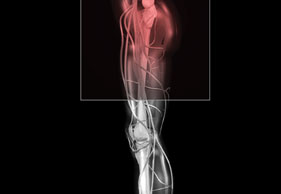About four years ago I started noticing an acute pain in my gluteal area, though only on the one side, especially when I was cycling longer than three hours or running further than 5km. Lately I have a constant pain in my left glute, hamstring and calf. I’m a runner and spinning instructor. Sometimes my whole abdomen goes in spasm when I run. I did Comrades this year, with lots of pain and painkillers (I know all the dangers – I’m a personal trainer). I have been to physiotherapists but to no avail. Sometimes I’m in so much pain that demonstrating exercises to clients is almost impossible. I stretch, do strengthening exercises and supplement adequately. Sitting is the most painful, be it in a car, in a church or in a meeting. Please help. I love to run! – ELMARIE THERON, WELKOM
ANSWER
You describe your problem as having started four years ago with pain only in the gluteal area, and also only after cycling longer than three hours and running further than 5km. Your condition has now deteriorated to the point where the pain is constant and is referring into the hamstring and calf muscles.
I am not sure whether this is since running Comrades or was present before as you clearly ran Comrades in lots of pain, having to resort to tablets to get through the race. Running with these types of symptoms is definitely not recommended.
From your description of the pain it seems most likely to be a progressive lumbar disc prolapse. This means that the disc is bulging increasingly and placing pressure on the nerve that supplies the back of the leg. This condition is most commonly exacerbated by flexion (bending forward), sitting and jarring activities.
Unfortunately, I do not have information about the type of physiotherapy you have already received or if you have followed their advice, but it would be advisable at this point to return to physiotherapy. It would be preferable to consult with a physio experienced in the treatment of spinal conditions. Most importantly, it is essential that you respect the pain and unfortunately, this may mean seriously curtailing your activities until the symptoms improve.
If you continue to load the discs, the problem could continue to deteriorate to the point where you require a period of bed rest or even as a last resort, surgery if the disc continues to bulge to the point of rupture. With the correct treatment the disc can settle down and with time you could slowly return to running and your normal activities.
The physio should also be able to advise you on how to sit with the correct posture and support, and on ways to reduce the loading on the discs during daily activities.
Modern Athlete Expert
TONI HESP
Physiotherapist in Edenvale,


